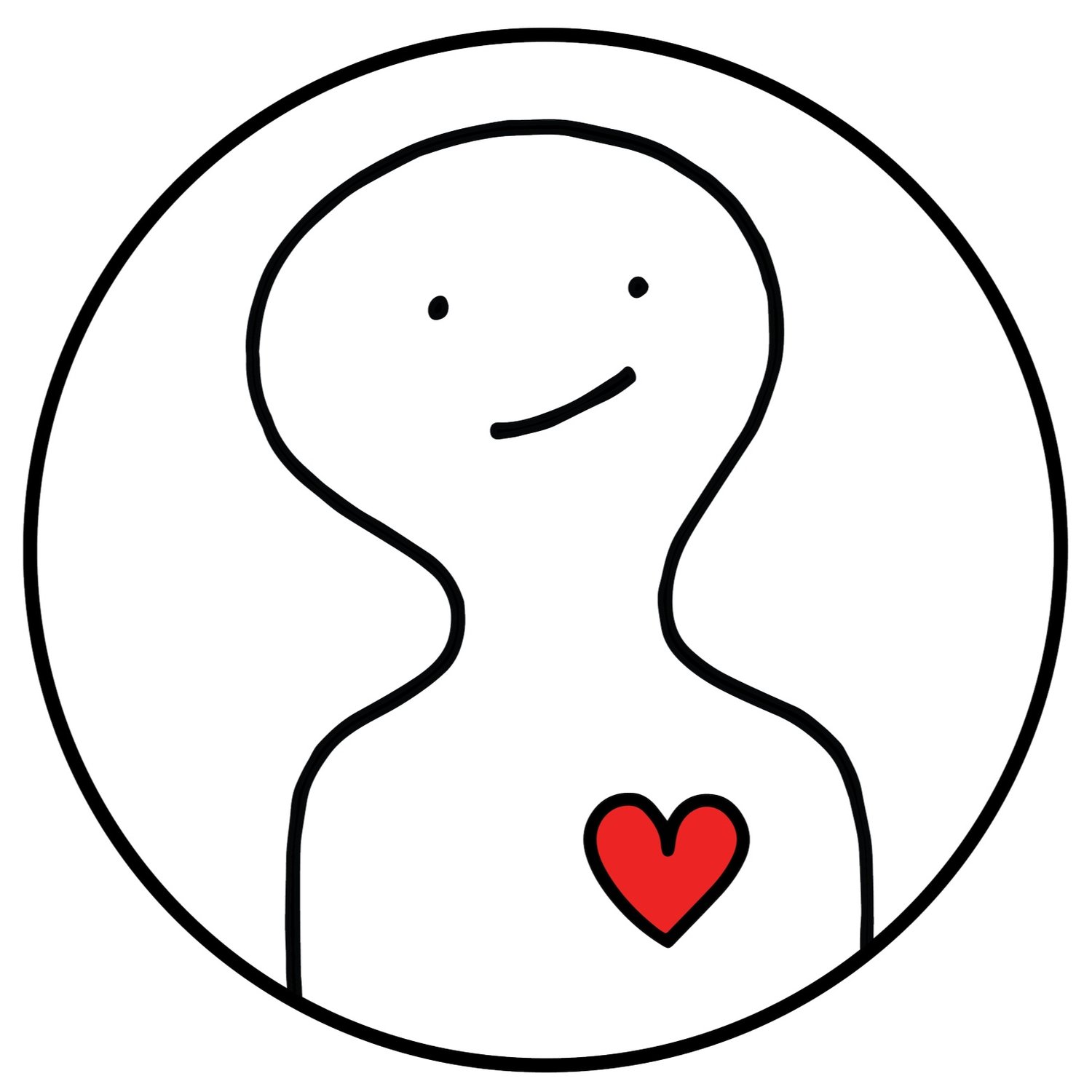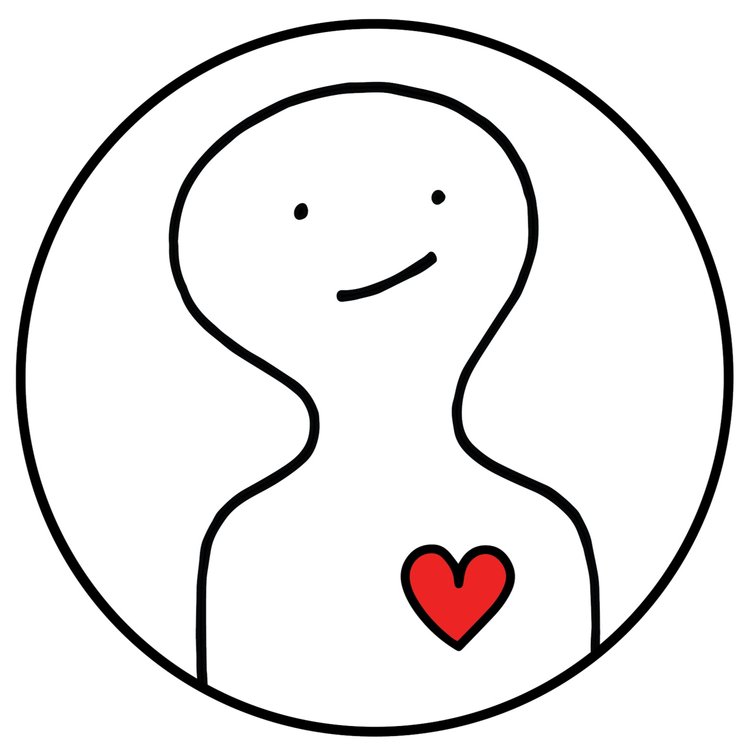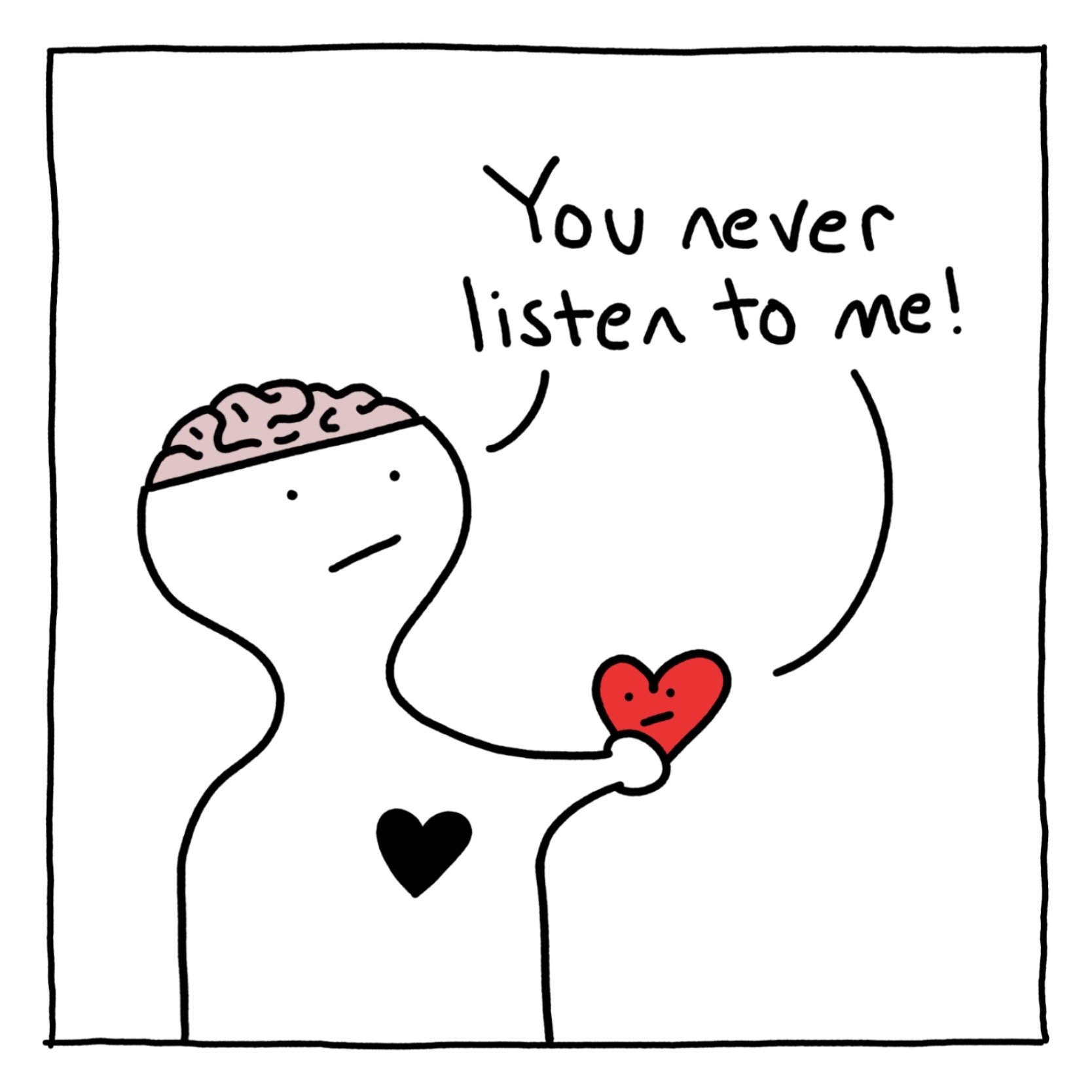The projects that mean the most to me tend to be the ones I work on the least.
I’m intimidated by them. Afraid that if I fail at the things I care most about, maybe it means I shouldn’t be doing what I’m doing.
The longer I avoid them, the more my fear grows, and the more I avoid the work.
In these moments it's tempting to abandon the project and start something new.
But I’ve made things that have clicked, and I've made things that have completely flopped, and I’m so much more proud of the projects that flop than the ones I never finish.
All the easy problems have been solved. Your job is to explore the opportunities that require courage and creativity.
Working people to the bone doesn’t bring out the best in them.
Creativity, joy, connection, and empowerment are all stifled, and after the initial surge of energy quickly runs out, productivity takes a nosedive.
It’s a terrible way to treat people, and it doesn’t put them in a great headspace to serve others.
Your employees pay the price, your guests pay the price, and you pay the price.
We know this intuitively—we can’t create an amazing experience for our guests if we don’t create the proper environment for our team.
But it doesn’t stop there. As leaders we must extend the same care we offer to others to ourselves.
A leader must be confident enough to know they bring something special to the table but not so arrogant to think they’re the only one that does.
A leader’s job is ultimately to create change.
Change within an organization, inspiring change within another person, or changing the way we see something.
Change is scary. There are no guarantees, and the process of creating change has the potential to expose just how much we don’t know.
So we have to choose what we will honor: possibility or safety.
If we honor safety we already know the outcome. Things stay the same, and we save ourselves the pain of getting it wrong.
If we honor possibility, we might get it wrong but we avoid a deeper pain—the pain that comes from not doing anything at all.
Getting it wrong is not the end. Things still move forward when we get it wrong, and getting it wrong gives us the best chance of being able to get it right.
Working with someone who hides their lack of skill or insecurities underneath an endless stream of meaningless, albeit funny quips, is a drain.
Equally draining is working with someone who seems incapable of cracking a smile or finds no joy in the work they do.
Taking your work seriously isn't the same thing as being overly serious.
Having fun at work isn’t the same thing as being the class clown.
Serious and fun can coexist at work and it’s amazing when they do.
Telling people to act a certain way isn’t enough. The environment you create sets the tone.
The feeling that a smile is a sign of weakness or that being overly serious is a sign of strength is a toxic cultural norm. Whether you want this to be the norm at your organization is up to you.
The distance between vision and reality. The space between where you are to where you want to be.
The gap keeps you up at night. It frustrates you. Makes you feel like you haven’t done enough. You spend years grinding yourself to the bone in a stress-induced flury trying to close it to no avail.
But here’s the thing: There’s no finish line for the work you’re doing. As you progress, your vision evolves, and so the gap remains.
So you have to reframe the gap. The gap represents opportunity. It’s your desire for better that created the gap in the first place. It’s not something to jump over, it’s something to wade into.
The gap is the work. Always. Forever.
Completing tasks gives us the juicy satisfaction of knowing we did what we were supposed to do.
But we often neglect to tap into the deeper opportunity the task gives us. We’re not thinking, we’re just doing.
Simply doing has a tap-out point. Not just in terms of compensation, but also satisfaction, empowerment, and engagement.
I can teach you how to steam milk in an hour and you’ll barely need to be paying attention. It’s that easy.
It’s important.
It’s fun.
It connects.
But at the end of the day who do we want to be surrounded by: a group of milk steamers, or a group of leaders who also happen to steam great milk?
So we have to make a different ask and a bigger investment.
We need to help people learn to see.
To be engaged on a level where they don’t just know what they’ve done, but what they’ve learned, and how they can pay it forward. To tap into lessons that reward their effort exponentially.
Steaming milk is a useless skill to have outside of the cafe world—but feeling empowered to engage in critical thinking to solve problems, connect dots, and lift up others are skills that are valuable everywhere.
“How do you find such amazing people?!”
We get asked this question all the time.
While our team does a great job in hiring people that resonate with our culture, the truth is that amazing people are everywhere.
If you’ve been having a hard time seeing what we see, here are a few questions to ask yourself:
Do you have a solid idea of who you are as an organization, and share it with your people?
Have you shown people the impact their work has on the organization, its guests, and beyond?
Have you done the work to unlock the gifts inside the people you already have?
Have you communicated clear expectations and followed up on them?
Are you creating a safe environment where people can fail forward?
Do you care about the person standing in front of you?
The list goes on but you get the idea.
Choosing the defeatist attitude of “I can’t find any good people” says more about you than it does about the people who work for you.
I realize that shaming someone isn’t the best way to promote change, so if this stings a little—I get it, I’ve been there. This isn't easy work but it’s the work that matters, and it’s the work you signed up for whether you knew it or not.
So what’s more empowering: Operating from the belief that there’s a fixed number of talented, caring people out there, or looking inward and seeing what you can do help the people around you realize their potential?
Just imagine how rewarding it would feel to be surrounded by a group of confident and creative people all working together towards a common goal. That’s what work can be, and you can be the catalyst.
As we move through our lives, different seasons and situations give us different opportunities.
I stumbled into my first coffee job by accident. It was just supposed to be a pit stop. That short-term gig spiraled into an obsession that’s taken me all over the world, introduced me to some of my closest friends, and given me a space to learn, grow, and contribute.
Almost two decades later my day-to-day work has very little to do with coffee.
Leaning In
Leaning into our work allows us to create impact, connect with people, and tap into opportunities that we didn’t even know existed.
I never wanted to be in the coffee industry until I was in the coffee industry. I never wanted to be a business owner until I was a business owner. I’m not sure what the next chapter will bring but one thing has become clear to me: People's gifts have nothing to do with any particular career or job title.
Action
The job you have isn’t as important as how you view that job (What impact am I making?) and how you show up to that job (Am I leaning into the work and giving my best effort?).
Waiting to contribute until you have the opportunity you want might hold you back from creating the opportunity you need.
Since many business owners seem to see employees as a necessary evil "I have to go deal with my employees..." I'd like to offer an alternative perspective:
Employees are your biggest force multipliers. Infinitely more people will interact with your business through your employees than through you. Your employees are deeply connected to your guests, and the perception of your organization has more to do with the interactions they have with your employees than it does with your latest social media post. (You can only fudge the truth for so long.)
To put it into perspective:
Out of all the cups of coffee we've served today, I've personally served zero.
Out of all the packages we've shipped, I've shipped zero.
I haven't made any calls to wholesale partners or vendors, and I haven't fielded any guest emails.
That's all done by our amazing team.
So if you're fed up with your employees, here are a few questions to mull over:
What role have you played in creating this culture of resentment?
Will you accept the responsibility to reshape that culture?
Where would your business be if you had no employees?
Employees are first and foremost humans. This post is aimed at those who may need a little push to see how the human and business aspects of work are actually in perfect alignment, regardless of what traditional business practices tell us.
I've had a few big wins.
While I'm proud of what I've been able to accomplish, wins often feel like they come with the burden of expectation.
Let's set aside the fact that those expectations are projections created in my head. Self-imposed or not, these expectations feel real.
When the expectation is perfection - you lose. You can't move forward in any meaningful way without hitting a few bumps in the road.
But if the expectation is to contribute, you have the freedom to experiment—to swing at more things and know that even if you miss, even if your batting average is terrible, you'll still get more hits this way than if you stay in the dugout.
Plainly put: the best way to get more hits is to get more at-bats.
Yes, you'll have more misses this way too, but unless you're a baseball player, no one's going to look at your batting average, they're going to look at your work.
What have you created? What have you contributed?
Here's to letting our successes inspire us, not stress us out.
Actions speak volumes, but when we're helping someone through a training phase, it's useful to remember that they may have not yet developed the skill to have their actions meet the level of their intentions.
A committed player needing a nudge in the right direction might look the same as someone who's actively avoiding responsibility.
I've found I have the most useful conversations when I dive in assuming the former.
Movies that move our soul all start with a strong vision that is then brought to life with great acting.
The actors can't play their part without understanding the vision, and it's the role of the director to communicate that vision.
Painting the picture of what's in our heads to the people around us can be a challenge. I've often struggled with the nagging question: "Why don't they just get it?!"
Part of this is the frustration of something feeling painfully obvious to me, yet somehow everyone around me seems oblivious. The other part is frustration with myself for not putting in the work it takes to effectively communicate my vision.
This is the gift of leadership: seeing possibilities that others don't, and being able to open doors that people didn't even know existed.
Painting the picture is more than listing facts, and pushes far beyond the transactional relationship many of us have with work ("Do this because I pay you to!"), it's about creating an emotional connection to another world.
Visions we're unable to communicate are just ideas, and ideas that live only inside our heads don't help anyone.
You might have the vision that someone's been waiting for, best not to keep it to yourself.
The more we show up with our best effort wherever we are, the better our chances of ending up where we want to be (even if we don't know where that is yet).
Ever notice how in most superhero movies, the main antagonist is simply an evil version of the hero?
I always thought this was lazy writing, but it speaks to the truth that the hardest battles we fight are with ourselves.
Of all the work I've put in to try and be the boss our employees deserve, nothing has had a bigger impact than reconnecting with who I am at my core.
Turns out I'm not a business owner who happens to be a human, I'm a human who happens to be a business owner.
The opportunity to live up to the promises we make.
This is every business owner's dream. We create and share in hopes of spreading our message so that people may be inspired, take action and share experiences with us.
When someone walks through the doors for the first time, there’s no more faking it. That picture you posted of that beautiful latte art that was more the exception than the rule, the podcast you record about your level of service and show, the hours you painstakingly spent writing copy about what you stand for, and the change you hope to make in the world—at that moment all those things are either seen as the truth or a lie.
You’ve either kept your promise or you’ve broken it.
We don’t always mean to break our promise and no one bats a thousand, but we need to ask ourselves a couple important questions:
Are we putting more effort into looking good than actually being good?
Are we telling the truth?
Sometimes the truth isn’t pretty. This doesn’t give us a pass to lie but it can give us the perspective we need to level up our reality.
I’m writing this from the lobby of a hotel that has broken its promise in more ways than one. I feel taken advantage of and it’s a way I hope any of our guests at Cat & Cloud never feel. The funny thing is, the experience isn’t terribly bad, it’s just miles away from the promise, and that dissonance is what’s creating the disappointment.
A brand is a promise. We can only break it so many times before our reputation precedes us and all those pretty pictures we post won’t matter anymore.
End of content



